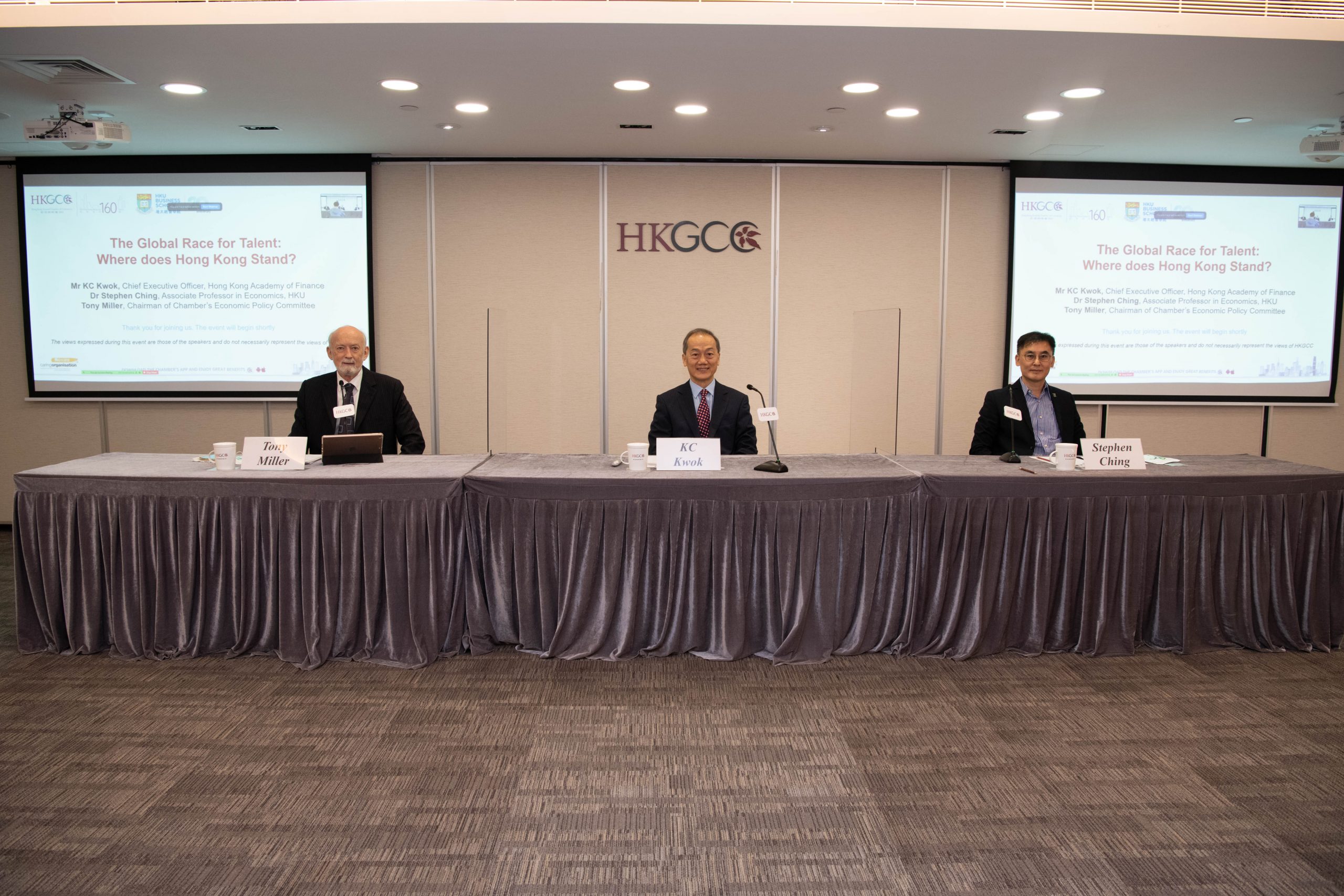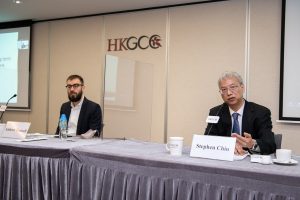To Catch up in the Global Talent Race – The Fourth HKU Business School x HKGCC Webinar Explores New Talent Strategies to Sustain our Competitiveness

The global talent race is getting increasingly fierce with the development of disruptive technologies such as AI and big data. To remain relevant in the international landscape, we must plug our brain drain and boost our talent supply.
Themed “The Global race for talent where does Hong Kong stand?”, the fourth HKU Business School x HKGCC webinar was successfully held on October 20, 2021 to gauge views from business experts and scholars to fathom new talent strategies amidst an ageing population.
The thought-provoking session was led by Dr. Stephen Ching, Associate Professor in Economics at HKU Business School and Mr. KC Kwok, CEO of the Hong Kong Academy of Finance (AoF), and moderated by Mr. Tony Miller, Chairman of the HKGCC Economic Policy Committee.
The webinar started off with the presentation of Mr. KC Kwok on the current position of Hong Kong in the global talent race. Mr. Kwok posited that Hong Kong is only attractive to corporations and senior managers overseas with its low tax rates and lucrative remuneration packages, but high living costs are deterring mid-level talent from putting down their roots here. He also criticised that there is a mismatch between our talent pool and the market’s demand. While Hong Kong has a huge demand on fintech and green finance, our city is not only unable to supply these talent, but also has way less aggressive talent attraction policies than our neighbours. Therefore, more investments on education and a reform on our talent policy are necessary. At the end of the day, Mr. Kwok believed that the economic clout of a city is limited, and to integrate into a bigger regional block is the key to our future success. He looked forward to seeing more integration between Hong Kong and other GBA cities.
In contrast to Mr. Kwok’s comprehensive review, Dr. Stephen Ching explored the topic of nourishing and retaining talent from another perspective by focusing on the post-secondary education system of Hong Kong. He firstly gave a detailed overview of the structure of the system by highlighting the number of enrolments in different UGC-funded and self-funded programmes. In face of claims that our tertiary education has failed to be responsive to market demand, Dr. Ching maintained that our undergraduate education aims to provide a whole-person training to equip the next generation to be visionary and be adaptive to ever-changing needs, whereas the taught postgraduate education serves the purpose of equipping them with advanced and practical skills to fill the demanding job vacancies. Therefore, he remained optimistic that Hong Kong is not going to lag behind in nourishing talent and embracing economic transformation. However, he recognised the need for the government to double down funding in research and academic programmes as global talent competition intensifies.
The seminar came to an end with a stimulating Q&A session. Using the story of Google’s online auction system, Dr. Ching further elaborated that the value of academic research is pivotal to achieve sustainable economic development. He posited that receiving education is not entirely for job hunting, but also to imagine the future. Mr. Kwok added that more communications with our mainland partners are needed to better synergise and co-cultivate a GBA talent pool. On our side, we must think deeply on how to close the gap between sub-degree programmes and the practical needs of the job market. Mr. Tony Miller concluded that the webinar today had covered a lot of the talent issues in the high-end sectors. He urged us to think more about the shortage of blue-collar workers in Hong Kong and what we can do about it. All speakers agreed and they look forward to engaging in more in-depth discussions and debates among experts and business leaders in the society.






